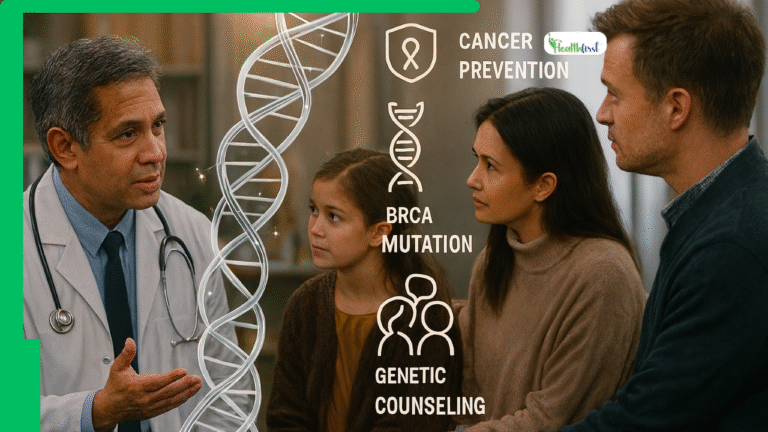Introduction to Hypothyroidism in Females
The thyroid is a small but powerful butterfly-shaped gland located at the base of your neck. It plays a significant role in managing your metabolism, energy levels, and overall body functions. When this gland does not produce enough thyroid hormones (a condition known as hypothyroidism), it can lead to a wide range of health problems, particularly in females. Women are more likely to experience thyroid problems due to hormonal fluctuations related to menstruation, pregnancy, and menopause.
Hypothyroidism often goes unnoticed because its symptoms can be mild or mistaken for other health issues. However, paying attention to certain signs early on can help with prompt diagnosis and treatment. This blog will highlight five common signs of hypothyroidism in females, emphasizing the importance of regular health checks and thyroid function tests.
1. Persistent Fatigue and Low Energy Levels
One of the most common and early signs of hypothyroidism in females is extreme fatigue. This is not just feeling tired after a long day—it’s an overwhelming sense of exhaustion that persists even after adequate rest.
The thyroid gland produces hormones that control how your body uses energy. When thyroid hormone levels are low, your metabolism slows down, leading to feelings of persistent lethargy and sluggishness. Women with hypothyroidism often report waking up tired, even after getting a full night’s sleep. This low vitality impacts daily activities, making it difficult to maintain productivity or stay active.
Why it Happens:
The lack of thyroid hormones causes every system in your body to operate slower than usual, including your energy production system. The fatigue associated with hypothyroidism is unrelenting and can’t be fixed simply by getting more sleep or taking time to rest.
Tip for Management:
To counter fatigue, it’s essential to get a proper diagnosis and start hormone replacement therapy if required. Along with medication, adopting a healthy diet and engaging in regular, low-impact exercises like yoga or walking can help improve energy levels.
2. Cold Intolerance
If you find yourself constantly feeling cold, even in warmer temperatures, this could be another sign of hypothyroidism. The thyroid gland plays a key role in regulating body temperature. When it is underactive, your body’s ability to produce and retain heat diminishes, making you feel cold even when others around you are comfortable.
Why it Happens:
The body’s metabolism slows down due to the lack of thyroid hormones, which in turn reduces heat production. This explains why many women with hypothyroidism experience cold intolerance and are more sensitive to colder environments.
Tip for Management:
Wearing layers and staying warm can help alleviate the discomfort, but addressing the root cause with thyroid medication will gradually help the body regulate temperature better.
3. Menstrual Cycle Changes
Hypothyroidism can disrupt a woman’s menstrual cycle in various ways. Some women may notice heavier or more frequent periods, while others might experience lighter or irregular periods. The imbalance in thyroid hormones can directly impact the reproductive system, as these hormones play a crucial role in regulating the menstrual cycle.
Why it Happens:
When the thyroid is underactive, it interferes with the body’s balance of reproductive hormones, which can lead to abnormal menstruation. Estrogen and progesterone levels may also fluctuate, further exacerbating menstrual cycle issues.
Tip for Management:
Women experiencing abnormal periods should discuss their symptoms with a healthcare provider, especially if other signs of hypothyroidism are present. Hormonal regulation through thyroid treatment can help restore normal menstrual cycles.
4. Unexplained Weight Gain
One of the hallmark signs of hypothyroidism in females is unexplained weight gain. Despite maintaining a healthy diet and exercise routine, women with an underactive thyroid may find it difficult to shed extra pounds, or they may gain weight without any significant lifestyle changes.
Why it Happens:
The thyroid hormone is responsible for regulating metabolism, which affects how your body burns calories and processes nutrients. When thyroid levels are low, the metabolism slows, and the body begins storing fat rather than burning it.
Tip for Management:
If you are struggling with unexplained weight gain, it’s important to check your thyroid levels. Once diagnosed, medication and an adjusted diet can help restore balance to your metabolism.
5. Dry Skin, Hair Loss, and Brittle Nails
Physical changes, such as dry, flaky skin, thinning hair, and brittle nails, are often associated with hypothyroidism. Women may notice that their skin feels rough, their hair becomes dry and brittle, or they lose more hair than usual—particularly from the outer edges of the eyebrows.
Why it Happens:
Thyroid hormones help regulate the skin’s moisture levels and hair growth. When the body is lacking these hormones, the skin becomes dry and may start to flake. Similarly, the hair and nails lose their luster and strength due to reduced nutrient absorption and slower cell turnover.
Tip for Management:
Using moisturizing skincare products and gentle hair care routines can help minimize these symptoms, but proper thyroid treatment is essential to address the underlying cause. A balanced diet rich in biotin, vitamins, and minerals can also support healthier skin, hair, and nails.
Thyroid Conditions Can Be Mild But Shouldn’t Be Ignored
In addition to the signs mentioned above, hypothyroidism can cause joint pain, muscle weakness, and cognitive issues such as difficulty concentrating or “brain fog.” These symptoms, though often mild in the beginning, can significantly impact quality of life if left untreated.
Other Symptoms to Look Out For:
- Joint pain or stiffness
- Muscle cramps, particularly in the legs
- Depression or mood swings
- Slow heart rate
- Constipation
- Puffy face
Since these symptoms can be subtle and develop over time, they are often mistaken for other conditions. Women should take note of any persistent changes in their health and consult a doctor if multiple symptoms of hypothyroidism are present.
Conclusion: Take Control of Your Thyroid Health
Thyroid conditions like hypothyroidism are common in women, especially during times of hormonal change such as pregnancy, menstruation, and menopause. While the symptoms can sometimes be vague or mimic other health issues, early detection and treatment are key to managing the condition effectively.
Women experiencing signs such as fatigue, weight gain, or menstrual irregularities should prioritize thyroid function testing. With the right diagnosis and treatment plan, most women can manage their symptoms and lead a healthy, active life.
If you notice any of the symptoms discussed in this blog, consider scheduling a visit with your healthcare provider for a thyroid screening. Managing your thyroid health is a proactive step toward overall well-being.









